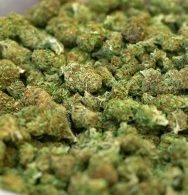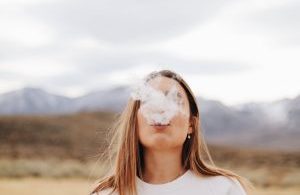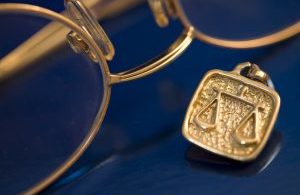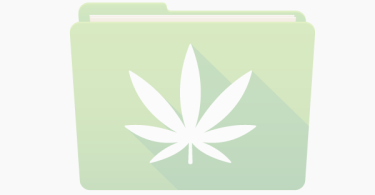Unofficial election results show Denver voters narrowly approved Initiative 301, decriminalizing psychedelic mushrooms. If military and overseas ballots don’t change that, Denver will become the first city in the country to decriminalize psilocybin, the key compound in psychedelic mushrooms.
That has led to national headlines, strong opinions and serious speculation. It has also led to a lot of questions. We have some answers.
Q: Will magic mushrooms be legal in Denver?
A: No. Absolutely not.
As a Schedule 1 narcotic under federal law, psychedelic mushrooms are illegal to sell or possess in Denver and everywhere else in the United States. Denver’s ballot initiative could not change that, and it didn’t.
“We recognize Denver’s right to conduct this experiment to shift law enforcement priorities away from psilocybin,” said Colorado Attorney General Phil Weiser. “As a matter of state and federal law, however, buying, selling, or possessing psychedelic mushrooms is still illegal.”
Q: So, what does change?
A: How the city’s police treat violations of the law.
Initiative 301 says personal use and possession of psilocybin mushrooms by people 21 years old and over will become “the city’s lowest law-enforcement priority.” It prohibits the city of Denver “from spending resources to impose criminal penalties” for the personal use of psychedelic mushrooms by people 21 and older.
Denver police are still learning what, exactly, that means. Sgt. John White, a spokesman for the department, said they expect the law to take effect May 16. Beyond that, they’re unsure.
“We are working closely with the City Attorney’s Office to get an interpretation of what that law is going to mean for us in law enforcement,” he said. “Once we receive that feedback, we’ll use that information to determine what training our Denver officers need moving forward.”
The office of Mayor Michael Hancock said in a one-sentence statement that he respects the decision of voters “and the Denver Police Department will enforce the law accordingly.”
Supporters expect that means fewer mushroom users will be caught by police. But prosecutors still plan to prosecute psilocybin cases for those who are caught. Again, this is not legalization.
Q: How many people will this affect?
A: Relatively few.
While there’s no sure way to know how many people use an illicit substance, arrests and convictions for magic mushrooms have been relatively rare in Denver.
Between 2016 and 2018, the Denver Police Department arrested 158 people for psilocybin, or 0.02 percent of Denver’s population.
Denver Police’s mid-level narcotics team confiscated 2.16 pounds of psilocybin products in the first three months of 2019. For comparison, it confiscated 453 pounds of marijuana, 23 pounds of THC and 57 pounds of meth in that same time, according to department data.
“We do not anticipate 301 to have an immediate effect on our operations because we handle very few cases involving psilocybin,” said Carolyn Tyler, a spokesperson for Denver’s district attorney. “For context, between 2016 and 2018, our office filed 9,267 drug cases and 11 involved psilocybin. Of those 11 cases, three were for possession with intent to manufacture or distribute psilocybin.”
Like the Denver Police Department, the Denver DA is still sorting out the measure’s effects.
“The language of 301 is open-ended, so it will take some time to implement next steps,” Tyler said. “Reasonable minds may disagree about the effect 301 will have on our office.”
Q: How will we know what effect this had?
A: A newly formed group will tell us.
The ballot question directs the establishment of “the psilocybin mushroom policy review panel to assess and report on the effects of the ordinance.”
The 11-person panel will be made up of two Denver City Council members, representatives from the police department and sheriff’s office, a criminal defense attorney, a city prosecutor, someone from the district attorney’s office, an addictions counselor and others.
The mayor must appoint members before the end of the year, though organizers say they will press for it to happen sooner. Police and prosecutors will then report to the panel on mushroom arrests and prosecutions. That panel will, in turn, report to the City Council.
Q: Does this pave a path toward legalization?
A: Good question.
There are parallels between this week’s vote and Denver’s decriminalization of marijuana in 2005 and 2007: Police still enforced the law on marijuana then — as they likely will on mushrooms now — but reformers saw decriminalization as a step toward Colorado’s eventual legalization of marijuana.
It’s too soon to say whether the same will happen with mushrooms.
“I think if you look at Colorado as sort of the litmus test of possibilities, then … I think the possibility is significant,” said Adam Smith, a cannabis industry adviser. Without decriminalization, the cannabis industry would not be where it is now, he said.
Critics of marijuana legalization also see a connection between its legalization and the future legalization of other drugs, like mushrooms.
“In 2012, when opponents of marijuana legalization said that lax attitudes towards marijuana would lead to lax attitudes towards other drugs, we were laughed at,” said a spokesman for Smart Approaches to Marijuana. “Well, no one is laughing now.”
The Denver Post will update this story as more information becomes available.










